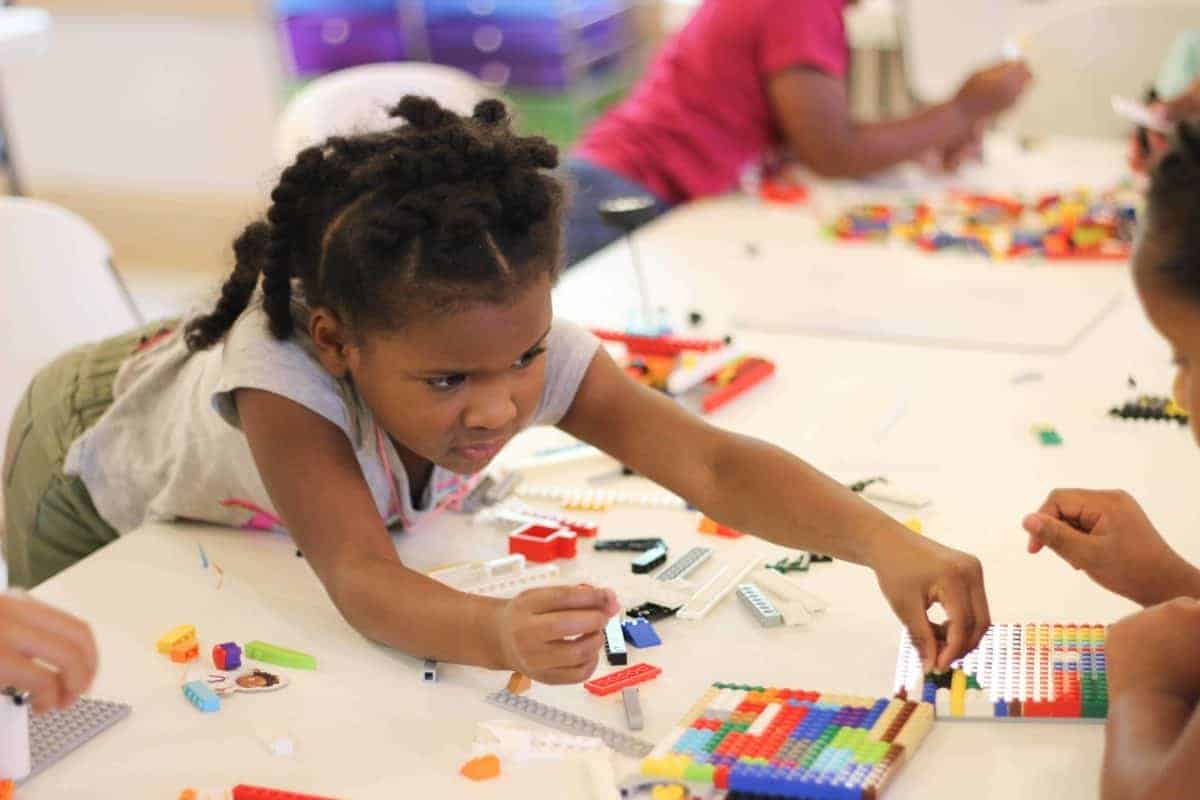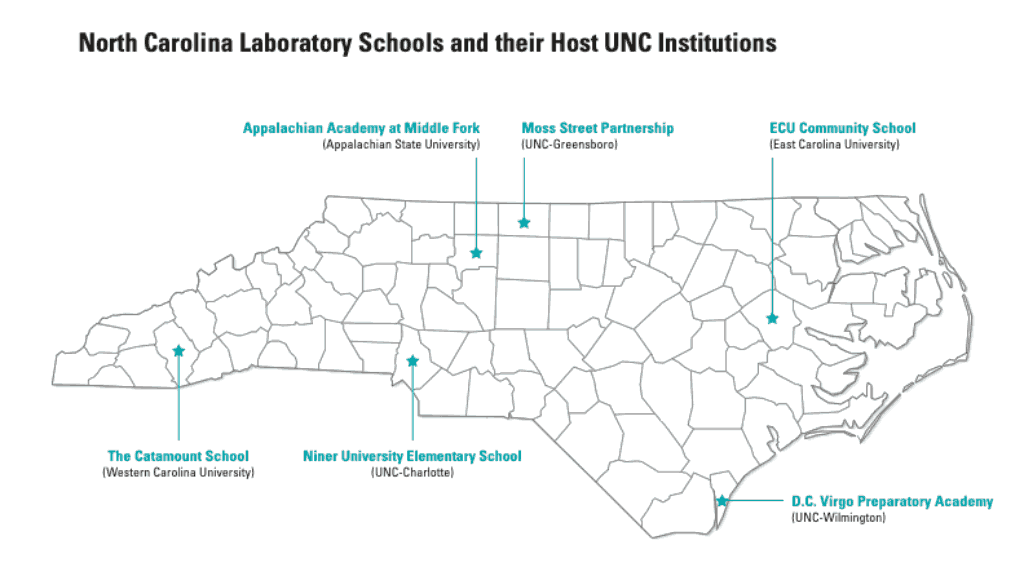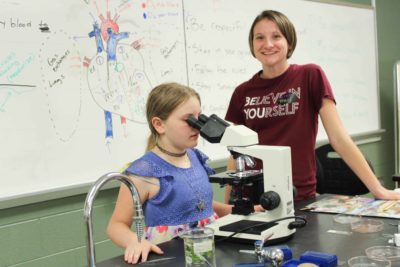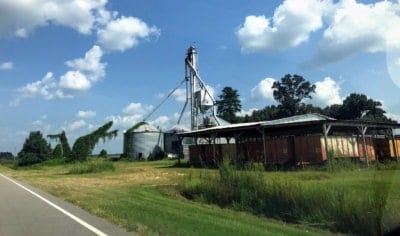
Welcome to our monthly feature on EducationNC called the NC STEM ScoreCard, written in partnership with the NC Science, Mathematics, and Technology Education Center (SMT) and the Burroughs Wellcome Fund.
Last month, we examined the Kenan Fellows Program. To dive into more of our past STEM ScoreCard topics, take a look here.
The goal of the NC STEM ScoreCard is to build broader awareness of how P-20 STEM* education is being nurtured across North Carolina and the impact on the well-being of our citizens and state.
*Note: STEM here is an acronym for Strategies That Engage Minds
Three key questions framing this goal are:
- In what ways does the state directly invest in programming and innovations that promote STEM learning?
- In what ways are significant philanthropies and other organizations supporting STEM education and learning in North Carolina?
- What measurable impacts are North Carolina realizing from its strategic investments?
Strategic investment in specific programs that increase the numbers, quality, and impact of STEM teachers in North Carolina is a central focus of the NC STEM ScoreCard. One of those investments is in the newly created UNC Laboratory Schools.
UNC Laboratory Schools
In 2016, the North Carolina General Assembly passed a law requiring the UNC Board of Governors to establish eight lab schools aimed at improving student performance in low-performing schools. The legislation was modified in 2017 to require the creation of nine lab schools rather than eight to better assure that every area of North Carolina benefits from the innovations generated at these schools.
The UNC Lab School initiative aims to provide enhanced educational programming to students in low-performing schools and to plan demonstration sites for the preparation of future teachers and school administrators.
The establishment of laboratory schools provides the opportunity to redefine and strengthen university partnerships with public schools, improve student outcomes, and provide high-quality teacher and principal training. Lab schools partner directly with local school districts to promote evidence-based teaching and school leadership, while offering real-world experience to the next generation of teachers and principals.

What do the lab schools have in common?
Each is committed to the following:
- Deliver high expectations to prepare students for college and life.
- Ensure students learn to read and communicate effectively.
- Address the academic, social, and emotional needs of all students.
- Harness the benefits of partnerships to strengthen learning, teaching, and school leadership.
How were the universities selected to participate?
Two primary factors were considered in selection: geography and the capacity of the institutions’ schools of education and educator preparation programs. In considering the capacity of the educator preparation programs, the number of undergraduate teacher candidates, the size of the education school faculty, and the amount of research money available to the schools was considered.
East Carolina University
The ECU Community School, a school within the South Greenville Elementary School in Pitt County, began operation in 2017. It assures that student scholars receive access to state of the art resources in literacy, science, math, and technology. Opportunities for additional learning time will occur through planned extended year activities, planned by a broad partnership in the Pitt County Schools and the ECU Colleges of Arts & Science, Education, Fine Arts and Communication, Health and Human Performance, Dental Medicine, Medicine, and Nursing. Students enrolled in the ECU Community School, the overwhelming majority of whom are from economically disadvantaged families, met expected growth targets in reading and math.
For more on the ECU Community School’s STEM initiatives, read this report, which was created by the school and submitted for this article. Other information on the school is below.
- East Carolina University Laboratory School with partner Pitt County Schools
- How ECU partners with a local elementary school
Western Carolina University
The Catamount School was founded in 2017 on the campus of Smoky Mountain High School. It is a lab school for sixth, seventh, and eighth graders designed to explore innovative teaching approaches and applied learning opportunities in order to help every student discover his or her full academic potential.
For more on the Catamount School’s STEM initiatives, read this report, which was created by the school and submitted for this article. Other information on the school is below.
- Running toward her goals: Catamount student succeeds with Heart & Sole program
- Lessons learned from two years as a lab school
Appalachian State University
A central focus of the Academy at Middle Fork in Forsyth County, which opened in August 2018, is on implementing an inclusive, integrated, and interdisciplinary curriculum that engages the whole child in boosting their academic success. Students work in small guided reading groups so students develop the knowledge and ability to fluently read and comprehend text. Students also focus on hands-on exploration of math standards by working in small groups, thinking about and applying new math concepts. The Academy at Middle Fork met expected growth targets in its first year.
For more on the Academy at Middle Fork, read the articles below.
- ASU starts Middle Fork lab school in Winston-Salem
- App Academy lab results come back positive – for joy and engagement
UNC-Greensboro
Moss Street Partnership School is a school for kindergarten through fifth graders that emphasizes experiential learning that is authentic, active, learner-centered, challenging, and literacy-rich. Moss Street Partnership School is located in Reidsville, which is in Rockingham County. Standards-based content, experiential activities, active learning, and creative problem solving are merged to improve teaching and learning across the curriculum.
For more on Moss Street Partnership’s STEM initiatives, read this report, which was created by the school and submitted for this article. Other information on the school is below.
UNC-Wilmington
D.C. Virgo Preparatory Academy is a K-8, year-round public school in Wilmington that was opened by UNC-Wilmington in July 2018. The school offers a family-friendly environment with a focus on the whole child and opportunities that extend to the UNCW campus and broader community.
For more on D.C. Virgo Preparatory STEM initiatives, read this report, which was created by the school and submitted for this article. Other information on the school is below.
- D.C. Virgo ready for new students under UNCW partnership
- D.C. Virgo Preparatory Academy, a lab school in Wilmington, wants families to come to school together
UNC-Charlotte
The Niner University Elementary School will open as the sixth laboratory school in August 2020. For more on the school, click here.
UNC lab schools contact information
|
IHE |
Name of Lab School |
School Website |
Principal |
|
Appalachian State |
Appalachian Academy at Middle Fork | ||
|
East Carolina |
ECU Community School | ||
|
UNC- Charlotte |
Niner University Elementary School | ||
|
UNC-Greensboro |
Moss Street Partnership | ||
|
UNC-Wilmington |
D.C. Virgo Preparatory Academy | ||
|
Western Carolina |
The Catamount School |
https://www.wcu.edu/learn/departments-schools-colleges/ceap/catamount-school/ |
Questions for maximizing this strategic investment in STEM teacher quality
- What will be the essential “success metrics” used to assess student impacts of the UNC lab schools?
- How will the broader impacts on the public school teachers and university faculty working collaboratively in the lab schools and on the parents of students enrolled in the schools?
- What strategies will be developed at each of the UNC lab schools to extend the “lessons learned” to other public schools in North Carolina and to other teacher preparation programs?
Recommended reading



